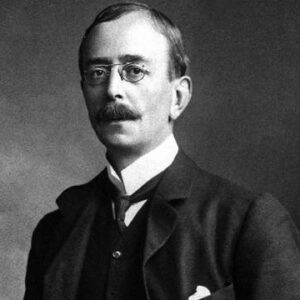Doctor Sir Charles Scott Sherrington is one of the world’s most renowned neuroscientists and reflex researchers. Charles was nurtured in an environment that emphasized education and an appreciation for the arts, which he retained throughout his life. After attending a prestigious school, he was encouraged by outstanding mentors at the university, where he received his medical degree. Sherrington diligently pursued his study for years, combining his studies with animal and human neurology and pathology research. Sherrington became a professor and continued to do important research in bacteriology, pathology, and neurology after earning a number of prestigious degrees. His work attracted sufficient attention for him to become a professor at two of the world’s most famous universities and to get twenty-four honorary degrees from universities throughout the globe. Queen Elizabeth of England knighted Charles for his service to Britain. For decades, his textbook on animal physiology was required reading for university students. Sherrington resigned after an extraordinarily long and fruitful career, where he continued to contact his pupils and fellow intellectuals from around the world. Charles Sherrington, who died of natural causes at a ripe old age, is celebrated internationally as a pioneering scientist in the fields of neurology and pathology.
Youth and Early Life
Charles Sherrington was born on November 27, 1857, in Islington, a neighborhood of London, Great Britain. Some reports claim that his father was a rural doctor named James Norton Sherrington and that his mother was Anne Brookes. Other reports indicate that Charles and his two siblings were the offspring of Anne Brooks and Ipswich surgeon Caleb Rose.
Charles grew up under the tutelage of Caleb Rose, whose collection of books, paintings, and geological artifacts fostered a lifelong appreciation for the arts and intellectual curiosity. He enrolled in the ‘Ipswich School’ at the age of 14.
In England, he began his studies at the Royal College of Surgeons as a young man. Additionally, he desired to attend Cambridge, but his family cannot afford it.
In 1876, he enrolled in the medical program at St. Thomas’ hospital. Three years later, he enrolled in Cambridge as an independent student to study physiology.
In 1883, he won multiple awards at the international academic competition ‘Natural Sciences Tripos’
Charles Sherrington’s Career
He became a member of the “Royal College of Surgeons” in 1884. In the same year, he and a colleague published a seminal report on brain surgery performed on a dog.
Cambridge University awarded him a Bachelor’s degree in Medicine and Surgery in 1885. Cambridge University also engaged him to travel to Spain to study an epidemic of Asiatic cholera.
In 1886, Sherrington became a licentiate of the distinguished Royal College of Physicians, an elite group of medical professionals. During the same year, he was dispatched to Italy to investigate another case of cholera.
In 1891, he was named superintendent of the University of London’s Brown Institute for Advanced Physiological and Pathological Research, where he conducted both human and animal research.
In 1892, he identified the specific muscles responsible for initiating the stretch reflex. Over the next two years, Charles would publish a number of publications on spinal reflexes and muscle nerve supply.
He was appointed professor of physiology at Liverpool in 1895. Two years later, Sherrington gave a renowned speech termed the “Croatian Lecture” on his animal pathology research.
The Integrative Action of the Nervous System was a compilation of ten lectures presented by Sherrington at Yale University and published in 1906.
He received the “Waynflete Chair of Physiology” at “Oxford University” in 1913. Multiple of his students went on to win the Nobel Prize.
In 1919, he published “Mammalian Physiology: a Course of Practical Exercises,” a seminal work in the field.
In 1925, he published a collection of poems on World War I titled “The Assaying of Brantius and Other Verse.”
In 1933, he presented a speech at Cambridge entitled “The Brain and Its Mechanism” in which he expressed his conviction that mental performance influenced physiological processes.
He retired from Oxford in 1936. He subsequently moved back to Ipswich and constructed his own home, where he continued to interact with students and intellectuals from throughout the world.
1940 saw the publication of ‘Man on His Nature,’ a collection of Sherrington’s philosophical and religious musings.
Charles’s Major Opera
Charles Sherrington is credited with various discoveries in the field of biology, but his most significant contribution is the hypothesis known as ‘Sherrington’s Law’, which describes the function of a neuron and the mechanism underlying the occurrence of reflexes in the human body.
Awards & Achievements
Sherrington was given the 1932 Nobel Prize in Physiology or Medicine for his theories regarding the human nervous system, specifically the functioning of a neuron.
He was appointed a Grand Cross Knight of the Most Excellent Order of the British Empire in 1922. In addition, he received honorary doctorates from 22 universities throughout the world and received a number of other significant scientific honors.
Personal History and Legacy
Charles Sherrington married Ethel Mary Wright on August 27, 1891. They have one son together, Carr E.R. Sherrington.
This distinguished scientist passed away in Sussex, England on March 4, 1952, at the age of 94.
In 1916, he publicly advocated for the admission of women to the medical school at ‘Oxford University,’ establishing him as an early feminist. He enjoyed collecting and reading ancient books the most.
This prominent scientist is commemorated through the naming of two distinct reflexes, two spinal nerve rules, and a phenomenon involving skeletal muscles.
Estimated Net Worth
Unknown.
Trivia
Sherrington worked at a shell factory in Birmingham, England, during World War I.


